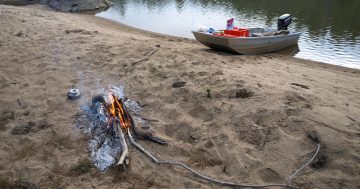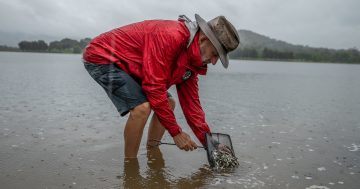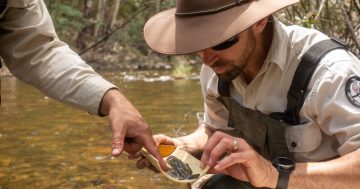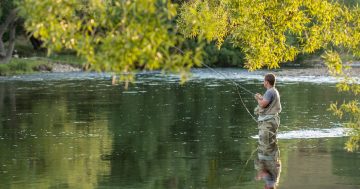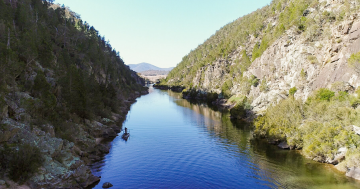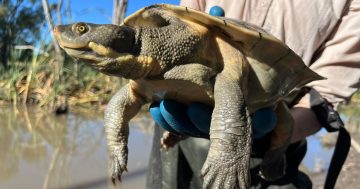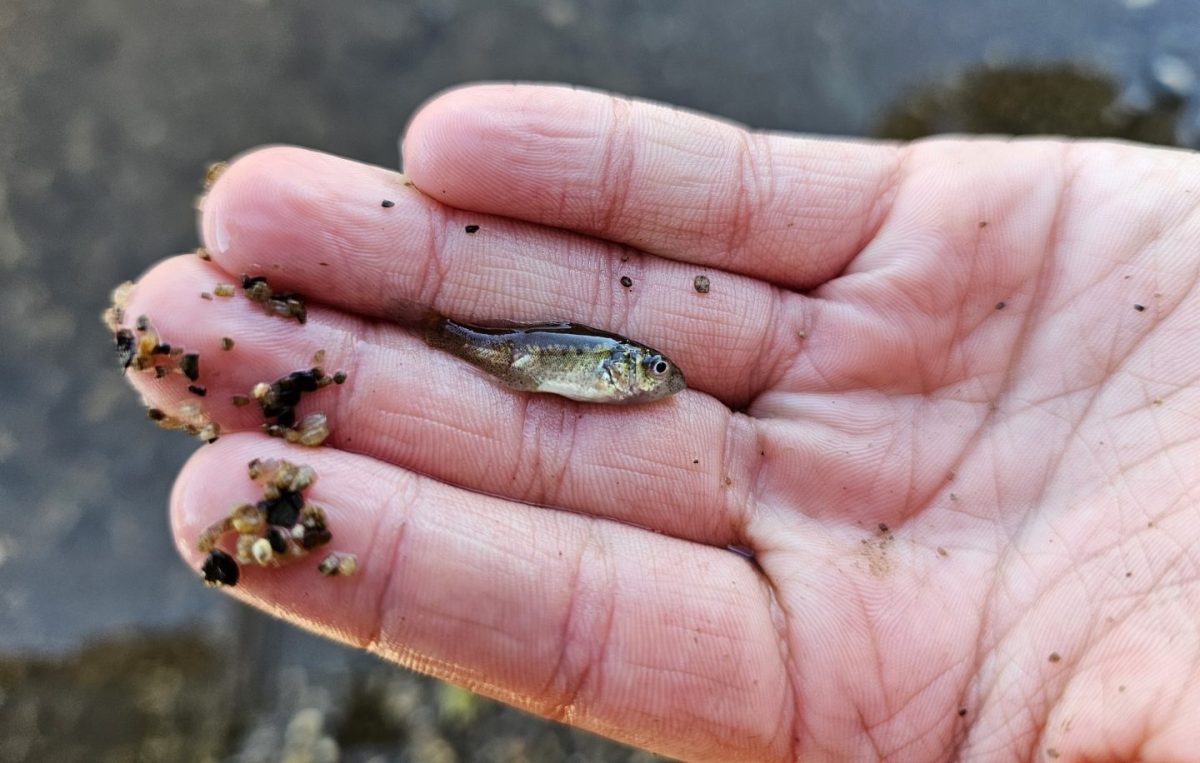
Thousands of native golden perch fingerlings were recently released into waterways around Bredbo township. Photo: Scherie McMillan.
The golden perch is a rather unassuming looking fish. Medium to large when fully grown and ranging from yellow/bronze to olive green, they have beady eyes, a humped back and an almost comical underbite.
Sometimes called yellowbelly, callop or Murray perch, golden perch are caught in competition, for cooking, or just for fun – but they’re also one of the most important native fish in Australia’s fresh waterways.
The species has significant cultural importance for many First Nations people and, as both predator and prey, is critical to the health of river ecosystems.
Unfortunately these perch are threatened, having experienced massive decline throughout the Murray-Darling Basin since European settlement.
Fifteen thousand golden perch ‘fingerlings’ (juvenile fish) were recently released by Bredbo Fishing Club, thanks to NSW Department of Primary Industries’ native fish stocking program, which provides two dollars for every one offered by community groups to release natives into waterways across the state.
The club was joined by a small group of volunteers from throughout Bredbo township and beyond, releasing the perch at Bredbo and Murrumbidgee river junction, Cappawidgee Road crossing and Billilingra Road bridge.
“This is really important for us as recreational fishers and a close-knit rural community that loves its river,” Scherie McMillan of Bredbo Fishing Club says.
“We chose three key locations around the township that feed into the Murrumbidgee River. Alongside our yearly ‘carp out’ competition, a release like this works hard to push invasive species, mainly carp, out of our local waterways and improve the numbers of native fish.
“It’s fantastic for the environment, but it’ll also be nice for anglers to pull something out of the river every once in a while that isn’t a carp.”
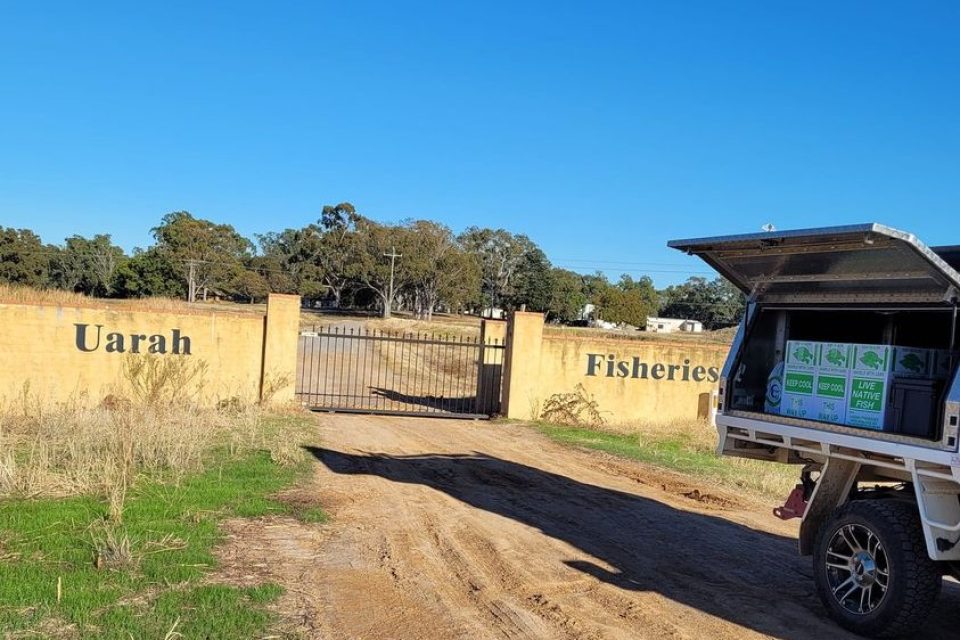
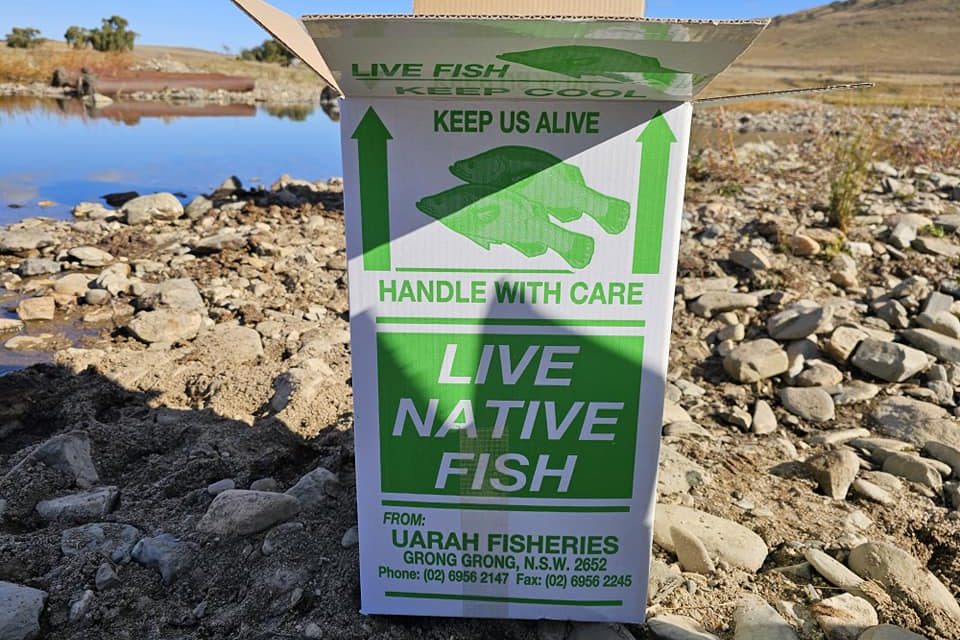




The release went well according to volunteers, but in the wake of a new warning from the Invasive Species Council (ISC), initiatives like this one may not be enough to save native species.
ISC sounded an alarm on 23 April on behalf of critically endangered Yalmy galaxias, which the council said may already be beyond saving. The last survey of the native fish, more than a year ago, only found 20 survivors.
“The Australian Government is on the brink of breaking their promise of no new extinctions, as the Yalmy galaxias is on the brink of disappearing forever. It may already be too late,” Jack Gough, advocacy director for ISC, said.
“The Yalmy was probably once widespread throughout the Snowy River system, but it has been eaten out by predatory introduced trout and hammered by drought and fire in recent years.”
ISC believes extinction of the Yalmy, and 14 other galaxias fish species, is ‘almost guarateed’ without urgent intervention including a dedicated rescue effort, ‘haven’ creation, captive breeding and release programs, and a national Invasive Fish Action Plan.












